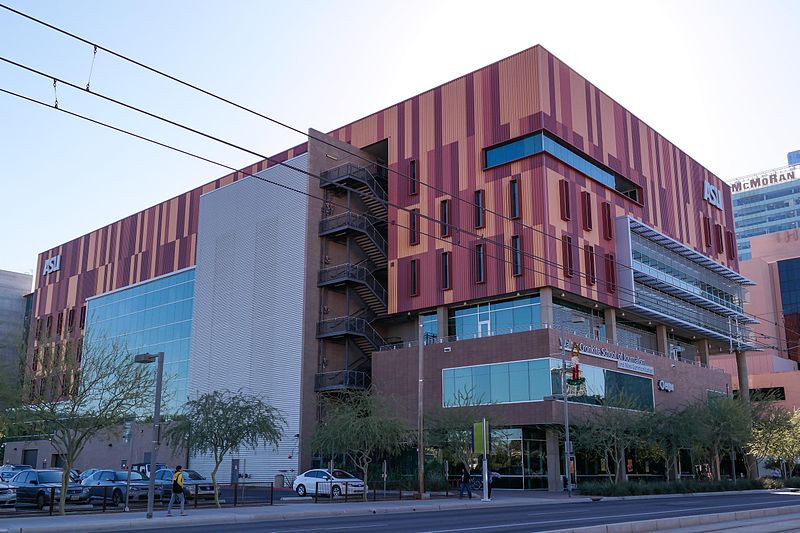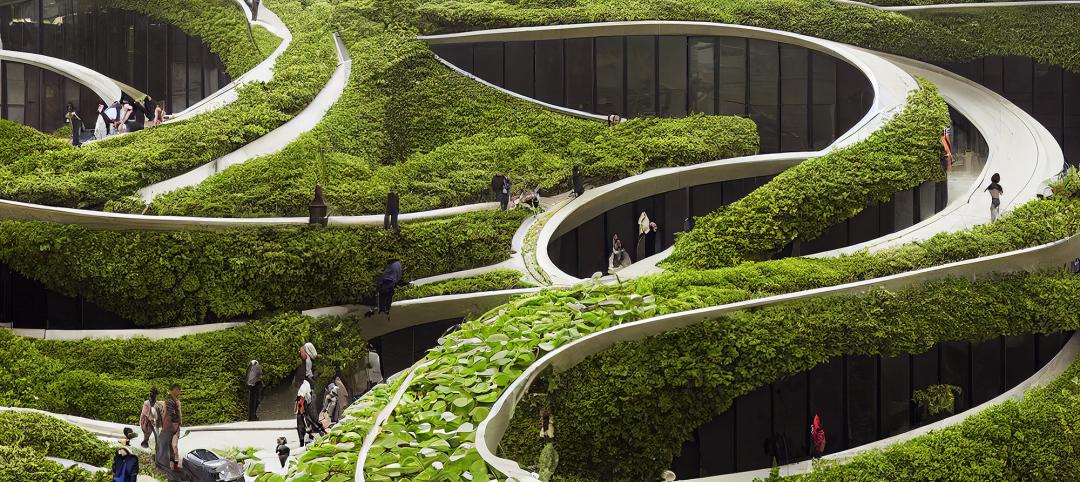The Board of Directors of the American Institute of Architects (AIA) has voted for Ehrlich Architects to receive the 2015 AIA Architecture Firm Award. The firm will be honored at the 2015 AIA National Convention in Atlanta. Ehrlich Architects is renowned for fluidly melding classic California Modernist style with multicultural and vernacular design elements by including marginalized design languages and traditions.
The AIA Architecture Firm Award, given annually, is the highest honor the AIA bestows on an architecture firm and recognizes a practice that consistently has produced distinguished architecture for at least 10 years.
The work of Ehrlich Architects covers a wide variety of program types (residential, commercial, institutional, educational) and uses a much richer palette of materials and textures than the typical California Modernist-influenced firm. However, they are most distinguished by the subtle and complex way they blend Modernist and multicultural design elements.
Before founding his Los Angeles-based firm in 1979, Steven Ehrlich, FAIA, spent time working with the Peace Corps in Africa. There Ehrlich gained an appreciation for simple, natural materials and vernacular solutions to energy, sustainability, and building performance challenges. Back in Southern California, Ehrlich found opportunities to renovate properties designed by architects high up in the California Modernist canon (like Richard Neutra, FAIA), which helped him to develop a confident, loose-limbed, but still traditional Modernist aesthetic. But his experiences in Africa, with building traditions created years before Modernism demanded a total rupture with the past, pushed him to develop an architecture that was more inclusive, responsible, and responsive than pure Modernism.
Ehrlich Architects is led by four diverse partners whose personal backgrounds and experiences result in a unique cultural sensitivity and a commitment to creating architecture that is globally relevant. They are: Steven Ehrlich, FAIA; Takashi Yanai, AIA; Patricia Rhee, AIA; and Mathew Chaney, AIA.
To fulfill these goals, Ehrlich Architects see themselves as “architectural anthropologists”—exploring ancient, developing-world building traditions and situating them in contemporary buildings to solve contemporary problems. Japanese-style courtyards, Middle Eastern lattice screens, and vernacular mud construction have all been ways they enrich contemporary architecture with age-old multicultural building elements.
“The marriage of the particular with the universal is one of the great virtues of the firm’s design approach, where connections between culture, climate, people and place are woven together in a distinct humanistic architecture shaped by circumstance,” wrote Steve Dumez, FAIA in a letter of recommendation.
A few of their most notable projects include:
- The Ahmadu Bello University Theater in Zaria, Nigeria. One of Ehrlich’s most vernacular and sustainable buildings, this 500-seat venue is composed of a ring of mud-walled pavilions, decorated with traditional bas-relief ornamentation. Local craftsmen helped with its construction, and it can be arranged in both proscenium and theater-in-the-round configurations.
- The Federal National Council Parliament Building Complex in Abu Dhabi, UAE. A symbol for a burgeoning democracy in the Middle East, it melds familiar Arabic design language with contemporary form and the latest technological advances to create meaning, maximum functionality and environmental sustainability.
- The 700 Palms Residence in Los Angeles, which uses Corten steel, copper, and stucco to create a strong, rugged approach to California Modernism, dissolving barriers between indoors and outdoors with glass, alternately boxy and brawny, light and open.
- Arizona State University’s Walter Cronkite School of Journalism and Mass Communication, Phoenix, Ariz. As the firm’s first design-build project, utilizing BIM, fast track, and integrated project delivery, the building delivered great value to the public in less than two years and was a harbinger of downtown Phoenix’s energetic redevelopment.
- The John Roll U.S. Courthouse in Yuma, Ariz., takes the symmetrical massing of a typical 19th-century courthouse and reinterprets it into a Modernist desert sandstone box, adding generous public space with a massive canopy-shaded “front porch” composed of photovoltaic panels.
Ehrlich Architects is the 52nd AIA Architecture Firm Award recipient. Previous recipients of the AIA Firm Award include, Eskew + Dumez + Ripple (2013), VJAA (2012), BNIM (2011), Pugh + Scarpa (2010), Kieran Timberlake (2008), Muphy/Jahn (2005), Polshek Partnership (1992), Venturi, Raunch, and Scott Brown (1985), I.M. Pei and Partners (1968), and SOM (1962).
Related Stories
Cultural Facilities | Aug 21, 2024
Baltimore’s National Aquarium opens 10,000-sf floating wetland that mimics the harbor’s original tidal marsh habitat
The National Aquarium in Baltimore has opened the National Aquarium Harbor Wetland, a 10,000-sf floating wetland that mimics the Inner Harbor’s original Chesapeake Bay tidal marsh habitat. Located between Piers 3 and 4 on Baltimore’s Inner Harbor, the $14 million project features more than 32,000 native shrubs and marsh grasses.
Mixed-Use | Aug 21, 2024
Adaptive reuse of a Sears store becomes luxury mixed-use housing
6 Corners Lofts at 4714 W Irving Park Road, Chicago, Ill., opened in March of 2024 as a 394,000-sf adaptive reuse project born out of a former Sears store.
Building Materials | Aug 19, 2024
Federal 'buy clean' construction materials label program unveiled
The U.S. Environmental Protection Agency announced a plan for implementing a new label program to boost American production of more climate-friendly construction materials and products. The label program will prioritize steel, glass, asphalt and concrete.
Museums | Aug 19, 2024
The Tampa Museum of Art will soon undergo a $110 million expansion
In Tampa, Fla., the Tampa Museum of Art will soon undergo a 77,904-sf Centennial Expansion project. The museum plans to reach its $110 million fundraising goal by late 2024 or early 2025 and then break ground. Designed by Weiss/Manfredi, and with construction manager The Beck Group, the expansion will redefine the museum’s surrounding site.
AEC Tech | Aug 19, 2024
Harnessing AI to revolutionize architectural design and creativity
Architects are wondering if AI will replace us. For Vessel, the gains offset the fear. We believe there is wisdom in the unattributed quote, “You won’t lose your job to AI. You will lose your job to someone using AI.”
Reconstruction & Renovation | Aug 19, 2024
Movement to protect historic buildings raises sharp criticism
While the movement to preserve historic buildings has widespread support, it also has some sharp critics with well-funded opposition groups springing up in recent years. Some opponents are linked to the Stand Together Foundation, founded and bankrolled by the Koch family’s conservative philanthropic organization, according to a column in Governing magazine.
Government Buildings | Aug 19, 2024
GSA posts new RFI for enabling energy efficiency, decarbonization in commercial buildings
The U.S. General Services Administration (GSA), in collaboration with the U.S. Department of Energy, recently released a new Request For Information (RFI) focused on enabling energy efficiency and decarbonization in commercial buildings. GSA wants to test innovative technologies through GSA’s Center for Emerging Building Technologies.
MFPRO+ New Projects | Aug 16, 2024
At 60 stories, the Paramount multifamily development will stand as Nashville’s tallest high rise
When complete, the 60-story Paramount building, at 750 feet high, will be the tallest high rise tower in Nashville, Tenn., surpassing the city’s current record holder, the 617-foot AT&T Building. The $390 million Paramount project recently launched condo sales after securing more than $230 million in construction financing.
Urban Planning | Aug 15, 2024
New York City begins first large-scale porous pavement installation
New York City is installing its first large-scale porous pavement installation along seven miles of roadway in Brooklyn. The project will keep 35 million gallons of stormwater out of the combined sewer system each year, according to a news release.
Urban Planning | Aug 15, 2024
The magic of L.A.’s Melrose Mile
Great streets are generally not initially curated or willed into being. Rather, they emerge organically from unintentional synergies of commercial, business, cultural and economic drivers. L.A.’s Melrose Avenue is a prime example.

















